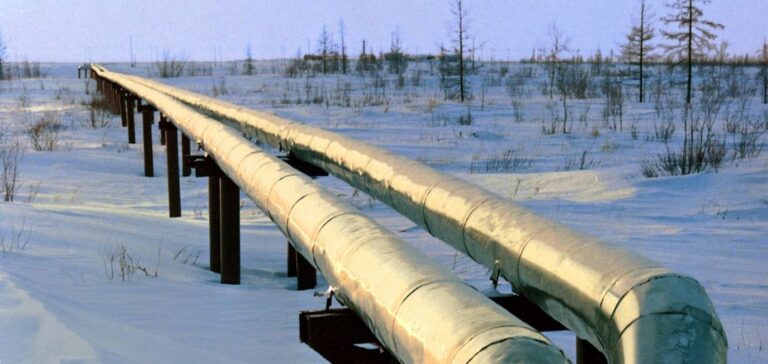Russia will prohibit from February 1 the sale of its oil to foreign countries that use the cap on the price of Russian black gold, a decision that has caused little reaction in the markets for crude oil prices.
This ceiling price was set in early December at $60 per barrel by the EU, the G7, and Australia; and aims to deprive Moscow of important revenues to finance its military intervention in Ukraine. “The delivery of Russian oil and oil products to foreign legal entities and other individuals is prohibited” if they use the ceiling price, it says in a decree signed Tuesday by Russian President Vladimir Putin.
The decree specifies that this measure is for a period of five months, “until July 1, 2023.” Only “a special decision” of Vladimir Putin himself will be able to allow the delivery of Russian oil to a country or countries that have implemented the ceiling price in recent weeks, it says in the decree.
At the beginning of December, the 27 member states of the European Union, the G7 countries and Australia agreed, after months of negotiations, on a cap on the export price of Russian oil at 60 dollars per barrel. In effect, only oil sold by Russia at a price of $60 or less can continue to be delivered. Beyond this ceiling, it is forbidden for companies to provide services allowing its maritime transport (freight, insurance, etc…).
Faced with this decision by Moscow, the price of black gold, already at its highest in three weeks, initially climbed but the rise was short-lived. The price of a barrel of North Sea Brent crude for February delivery finally ended up a modest 0.48% at $84.33. As for the barrel of U.S. West Texas Intermediate (WTI), also due in February, it gave up 0.03% to 79.53 dollars. “There was a very distinct reaction in prices” to the Russian announcement “but in fact this decision is not a surprise to the market,” Matt Smith commodity market analyst at Kpler commented to AFP. “This was to be expected, given everything the Russians have already said in recent months and what they have done with natural gas, refusing to sell to Bulgaria and Poland because these countries did not pay in rubles,” added the analyst.
According to him, the application of this ban will have a limited impact, because “large buyers of Russian crude such as India or China do not apply the ceiling price” and buy it below $ 60 per barrel. “It will tighten up the supply a little bit, but not that much,” Matt Smith commented further.
The price of Russian oil (Ural crude) itself is currently trading at around $65 per barrel, barely above the cap, implying a limited short-term impact of the cap measure, according to many observers.
Ukrainian President Volodymyr Zelensky deplored the “weak position” of his Western allies at the time of its establishment. For their part, the Russian leaders had repeatedly stated that they “do not accept” this mechanism which “will have no impact” on the course of the Russian offensive against its Ukrainian neighbor. On December 9, Vladimir Putin had threatened the West to “reduce the production” of Russian oil “if necessary”, blaming a “stupid decision”.
Russia is the second largest exporter of oil in the world and was, in 2021, the second largest supplier of black gold to the countries of the European Union. According to European leaders, 90% of Russian oil exports to the EU will already be stopped by the end of 2022 to protest against the Russian offensive in Ukraine.





















